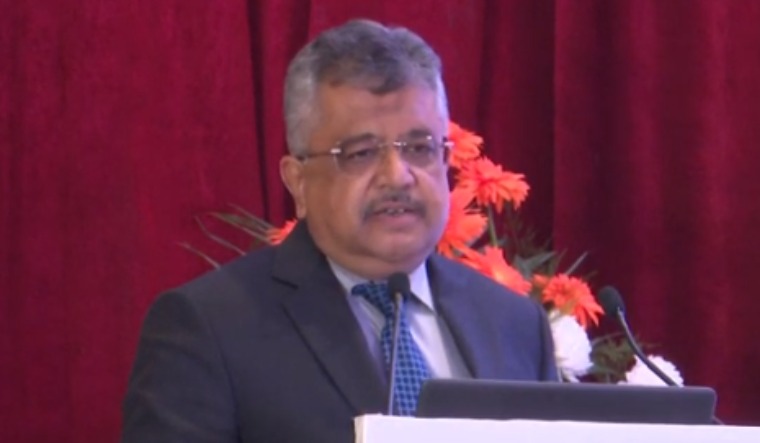Tushar Mehta, Solicitor General of India, while addressing the Supreme Court in a PIL relating to migrant workers, described journalists as “vultures”, and those criticising the government’s handling of the migrants’ issue as “prophets of doom”. He also said that some High Courts were running parallel governments, and that people were spreading negativity about the government’s activities in helping the migrants.
It seems that Mehta believes, as solicitor general, his task is only to parrot and toe the government’s line. But is that really the function of a government counsel?
I submit it is not, and his job is to assist the court in doing justice. In this connection, I wish to give some examples to prove my point.
1. In the early 1950s, Uttar Pradesh Chief Minister Govind Ballabh Pant offered the post of advocate general of the state to Pearey Lal Banerji, a top lawyer of the Allahabad High Court. The latter accepted, but on the condition that he would treat the government as any other client. He added if the chief minister or any other minister or official wanted to have a consultation with him, he would have to come to Banerji’s office in Allahabad for this purpose, and Banerji would not go from Allahabad (the principal seat of the Allahabad High Court, and Banerji’s hometown) to Lucknow (the state capital).
He also said that though on facts he would make submissions to the court as per the instructions of the government, on law, he would make submissions in accordance with his own opinion, even if contradicts the government’s view.
2. Govind Swaminathan, a legendary lawyer of the Madras High Court, was advocate general of the Tamil Nadu Government. Whenever he felt his government had made a mistake, he would admit it in open court. Once a student filed a petition in the High Court, alleging he had been wrongly denied admission in some course. Swaminathan, who was appearing for the government, and against the petitioner, carefully examined the matter and found the student to be right. He then told the court to allow the petition (i.e., decide against the government, whom he was representing).
3. Pt. Kanhaiya Lal Mishra was the advocate general of Uttar Pradesh for many years. When the socialist leader Dr Ram Manohar Lohia was arrested and detained for inciting farmers in UP not to pay the enhanced water rate from canals, he challenged his detention by filing a habeas corpus petition in the Allahabad High Court. Mishra appeared for the UP Government.
Lohia decided to argue his case himself, though he was not a lawyer. Thereupon, Mishra started going to the jail where Lohia was incarcerated, and assisted Lohia in preparing his case. He gave Lohia copies of many decisions of various courts in India, UK and US, which were in his favour, and which he could cite.
Many people were astounded at what Mishra was doing since he was appearing for the respondent State of UP in the case, but he responded that since Lohia was not a trained lawyer, and since for a correct decision, the version of both sides must be presented properly before the court, he was only helping the course of justice. He said that as advocate general his task was not to win cases but to assist the court to lay down the correct law.
Due to Mishra’s assistance, Lohia won his case, and his detention was quashed by the court.
4. In a criminal case that Mishra argued, when he was government advocate of UP, the High Court upheld the death sentence on the accused, being convinced by his arguments. However, when the case was over and Mishra stepped outside the courtroom, the police inspector who had investigated the case, and had been present in court, told him that the accused had been falsely implicated. On hearing this, Mishra immediately went back into the courtroom and informed the judges about what he had heard. Consequently, the judges reversed their judgment and acquitted the accused.
These examples show that the job of a government counsel is to assist the court in doing justice, and not to act as a toady or mouthpiece of the govt.
Tushar Mehta, and all government counsels, needs to ponder over this.
Justice Markandey Katju retired from the Supreme Court in 2011
The opinions expressed in this article are those of the author's and do not purport to reflect the opinions or views of THE WEEK



